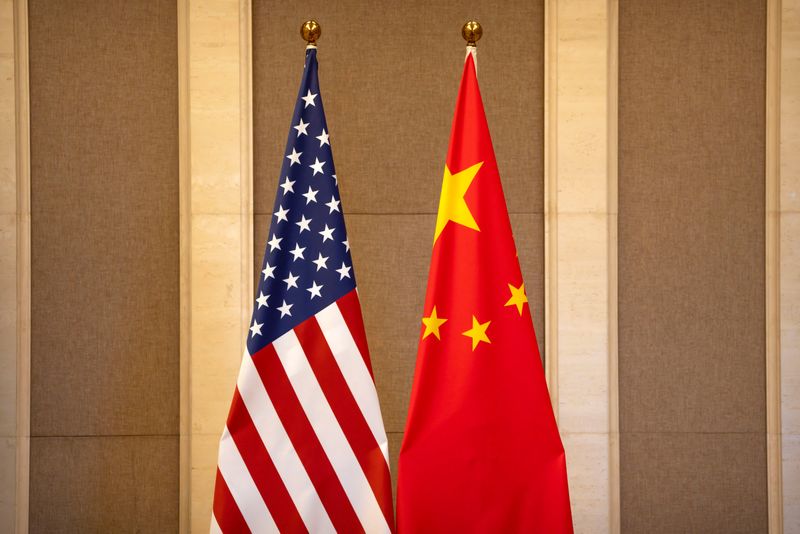By Michael Martina
WASHINGTON (Reuters) -China is manipulating global media through censorship, data harvesting and covert purchases of foreign news outlets, the United States said on Thursday, warning the trend could lead to a "sharp contraction" of global freedom of expression.
The U.S. State Department said in a report that Beijing has spent billions of dollars annually on information manipulation efforts, including by acquiring stakes in foreign media through "public and non-public means," sponsoring online influencers and securing distribution agreements that promote unlabeled Chinese government content.
The U.S. report comes amid controversy over China's efforts in recent years to expand the global footprint of its government-controlled media, especially as geopolitical competition between Beijing and Washington has intensified. Chinese leaders have sought to combat the negative images of China they feel are spread by world media.
Liu Pengyu, spokesperson for China's embassy in Washington, said the report was about heightening ideological confrontation and "smearing China's domestic and foreign policies."
"Written with a Cold-War mentality, the report is just another tool to keep China down and buttress American hegemony. China is strongly against such moves," Liu said.
Citing public reports and "newly acquired government information," the State Department's Global Engagement Center said Beijing had created its own information ecosystem by co-opting foreign political elites and journalists.
It had also invested in satellite networks and digital television services in developing regions that prioritize Chinese state-backed media content.
Chinese data harvesting overseas "has enabled Beijing to fine-tune global censorship by targeting specific individuals and organizations," it said.

"Unchecked, Beijing's efforts could result in ... a sharp contraction of global freedom of expression," the report said.
Despite unprecedented resources devoted to the campaign, Beijing had encountered "major setbacks" when targeting democratic countries, due to local media and civil society push-back, according to the report, which was produced under a congressional mandate to detail state information manipulation.